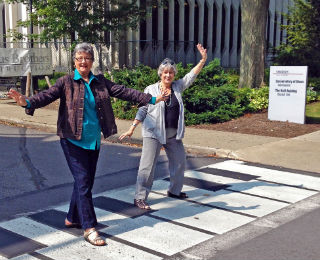Published: July 28, 2015
 Spirituality, according to The University of Minnesota’s Center for Spirituality and Healing is, a broad concept with room for many perspectives. In general, it includes a sense of connection to something bigger than ourselves, and it typically involves a search for meaning in life. As such, it is a universal human experience—something that touches us all. People may describe a spiritual experience as sacred or transcendent or simply a deep sense of aliveness and interconnectedness.
Spirituality, according to The University of Minnesota’s Center for Spirituality and Healing is, a broad concept with room for many perspectives. In general, it includes a sense of connection to something bigger than ourselves, and it typically involves a search for meaning in life. As such, it is a universal human experience—something that touches us all. People may describe a spiritual experience as sacred or transcendent or simply a deep sense of aliveness and interconnectedness.
Some may find that their spiritual life is intricately linked to their association with a church, temple, mosque, or synagogue. Others may pray or find comfort in a personal relationship with God or a higher power. Still others seek meaning through their connections to nature or art. Like your sense of purpose, your personal definition of spirituality may change throughout your life, adapting to your own experiences and relationships.
Spirituality and Health
Spirituality can have a positive influence on your overall health and wellbeing. A strong sense of spirituality can result in good health, longevity, a sense of purpose, better coping skills, contentment and emotional balance.
An exhaustive review that compared spirituality and religiousness to other health interventions found that people with a strong spiritual life had an 18% reduction in mortality. Giancarlo Lucchetti, lead author of the study, calculates that the life-lengthening benefits of spirituality can be compared to eating a high amount of fruits and vegetables or taking blood pressure medication. Although some researchers have suggested that the extent of spirituality’s benefit on health is exaggerated, most researchers agree there is a positive relationship between religious and spiritual practices and better health outcomes. These benefits can enhance life at any age.
Emotional Benefits of Spirituality
People who are deeply spiritual find comfort in their beliefs or spiritual actions. Whether it’s in the daily act of prayer or meditation, the ability to focus, or to commune with a higher power, it can bring comfort, healing, and peace of mind. While these things are often associated with overcoming hardships, they are also important tools to help people find their own sense of balance in the world.
People who feel balanced are thoughtful, compassionate, and even giving. Many volunteer, not only as expressions of their faith in action, but also with the knowledge that it feels great to help others.
Maintaining Spirituality
There are many ways for people to maintain spirituality and it often involves making time for personal reflection, such as praying, meditating, yoga or journaling. All of which can help curtail insomnia, improve memory and brain function, and reduce anxiety. There are other things you can do to help maintain spiritual balance, including the following:
- Communing with nature
- Physical activity
- Caring for others
- Setting goals and carrying them out
- Reaching out to develop relationships with new people or reconnecting with old friends
Developing a deeper spirituality can help you find balance, contentment and a better quality of life.
Be Good to Yourself
Finally, be good to yourself. Kim Neff, the author of “Self-compassion,” says treating yourself with compassion is as important as treating others well. She explains, “When we experience warm and tender feelings toward ourselves, we are altering our bodies as well as our minds. Rather than feeling worried and anxious, we feel calm, content, trusting, and secure. The broadening effect of these positive emotions can enhance our sense of curiosity, wonder, and awe—all feelings that contribute to spirituality.”
In addition, the physical as well as non-physical aspects of spirituality are important. Jon Kabat-Zinn, author and Professor of Medicine Emeritus University of Massachusetts Medical School says, “exercising and eating a nutrient rich diet, with lots of vegetable and fruits in one way to remind yourself that you feel deeply about this life and this body.”
What kind of activities do you do to get in touch with your spirituality? Comment below!
Sources:
http://www.takingcharge.csh.umn.edu/enhance-your-wellbeing/purpose/spirituality/what-spirituality





